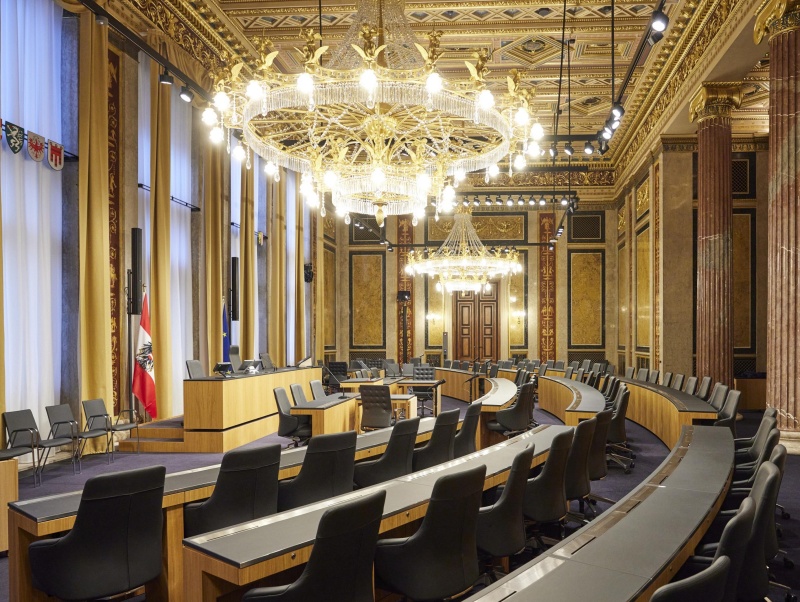Seat distribution
Federal Council seats are delegated by their respective Provincial Diets and represent the interests of their provinces in the federal legislative process. Following Provincial Diet elections, seats in the Federal Council are reallocated in accordance with election returns. Seating arrangements in the Federal Council meeting hall are made on the basis of parliamentary groups irrespective of the province a member may represent.
